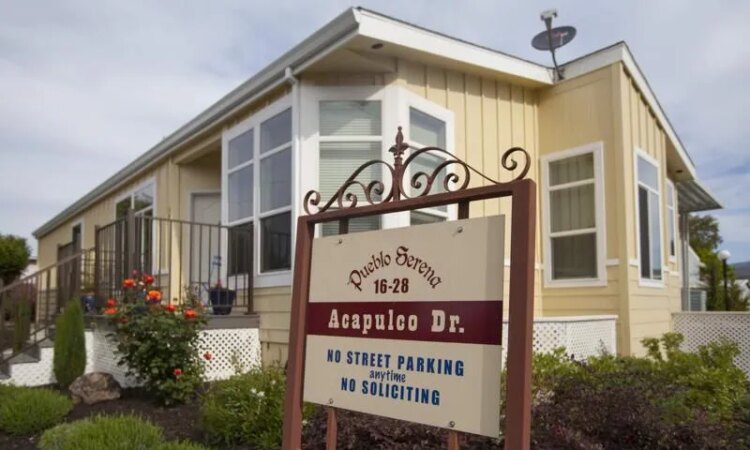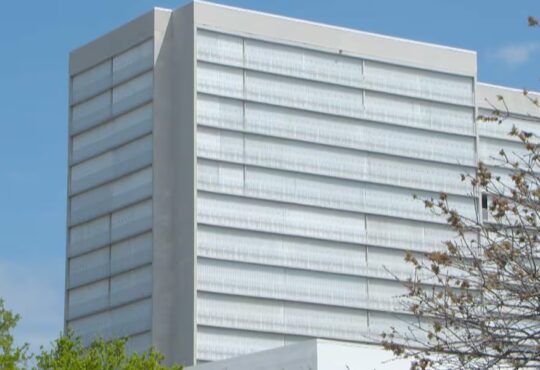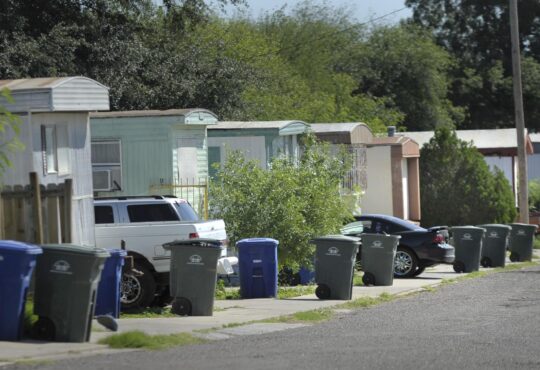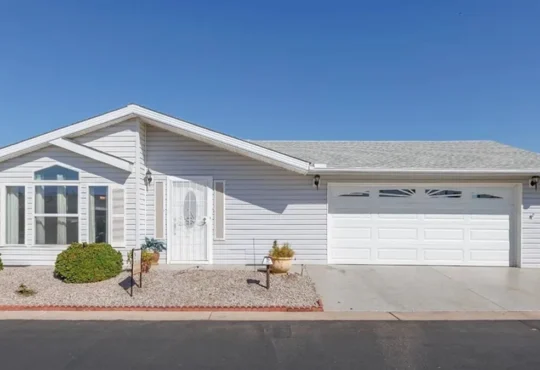City officials, residents advocate for affordable housing with upcoming mobile home park ordinance overhaul

The energy was palpable in Sonoma City Council Chambers on Nov. 5, where mobile home park residents, housing advocacy groups and city officials discussed overhauling Sonoma’s mobile home park closure and conversion ordinance to reflect state law and needs of the community.
Concerns about rent hikes, park closures, displaced mobile home park residents and losing affordable housing units in the city have been raised by residents and housing advocacy groups who seek stronger protections for residents. Advocates have urged City Council to update Sonoma’s current ordinance, which they say is outdated and lacks sufficient protections for the primarily senior and low-income residents who live in these affordable housing units.
Sonoma has three mobile home parks within city limits with more than 450 total units — Moon Valley, Pueblo Serena and Sonoma Oaks — that are recognized as a crucial source of affordable housing.
On Nov. 5, city officials hosted a study session at the regular City Council meeting to review the current ordinance regulating mobile home park closures and conversions and discuss updating the ordinance to reflect recent state law and specific needs of the community. Council Chambers saw a groundswell of passion and championship for protecting those who live in Sonoma’s mobile home parks.
“These are homes. And we have invested thousands and thousands of dollars; on our gardens, we’ve employed many people in town as plumbers, gardeners and construction people to help us. We are responsible for every aspect of our homes. Our roofs, our siding — everything that you can imagine as any home in town would have,” Pueblo Serena resident Diane Lumiere said.
“So to think of us as, kind of a displaceable group of people, is totally errant. We are as big a homeowners as anyone in this town,” she said.
The topic is part of a broader regional and statewide dispute over mobile home park regulations that local governments have addressed to safeguard tenants – particularly senior citizens and individuals and families on fixed incomes and preserve affordable housing.
The meeting was the first of two study sessions and focused on updates needed for compliance with state law. As advocates for stronger resident protections have urged city officials to act, and with recent state law requirements regarding mobile home residents and park owners, city staff launched the process of updating Sonoma’s 2004 closures and conversions ordinance.
Resident Bonnie Joy Kaslan said the community is “embarking on a transparent, stakeholder-inclusive journey” to change the ordinance, and that “we, stakeholder homeowners, recognize that our living situation is a uniquely hybrid one — we own our homes and are also required to invest in the park owner-specified required standards for the space/land we lease.”
Recent legislation – including Assembly Bill 2782, which became law in 2021, and Senate Bill 610, signed into law last month — expands mobile home park resident protections and requires local governments to make changes to reflect new standards for relocation assistance, notice periods and data about affordable housing impacts.
At the Nov. 5 session, Sonoma Community Development Director Jennifer Gates presented an overview of the city’s three ordinances and code sections that regulate mobile home parks.
Gates outlined potential changes to the ordinance, such as requiring a park owner applying to change the use, close or cease operations of a mobile home park, to file a comprehensive mobile home relocation impact report — with input from an independent consultant at the expense of the park owner — before any park can close or convert.
City Council would need to hold a public hearing, review reports and take direction based on findings of relocation impacts, options for displaced residents and whether the park conversion would reduce affordable housing in the city.
Gates explained requirements under recent state law, that park owners must compensate displaced mobile home occupants for “the full, in-place value of the mobile home” if relocation is not feasible. She said the city must adjust the notice to residents and disclosure code to reflect state law, which requires a 60 day notice, and City Council must determine if a park conversion will cause a shortage of affordable housing.
Public comments painted a vivid picture of what mobile home park living means for Sonoma residents, as speakers emphasized anxieties residents face. Social and health consequences of elder displacement, affordable housing these parks provide and investments residents put into their properties — that mobile homes are “true homes” and not “just units sitting on lots,” were some of the arguments made for stronger protections.
Mobile home park resident Lin Marie deVincent said “74 homeowners” were in attendance at the meeting, along with and gestured to the crowd that filled Council Chambers, “in support of our campaign.”
Pueblo Serena resident John Kyle requested that council members consider a “full ordinance revision.” which was included in the meeting agenda packet under public comment.
“It incorporates every requirement of AB 2782 and adds some local options to the draft. It was written and paid for at considerable expense, and by the mobile homeowners of Sonoma,” Kyle said.
City staff said the ordinance update process will begin once they are certain City Council, residents, housing advocates and mobile home park owners fully understand current regulations and state law requirements.
Caitlin Cornwall, a representative of the housing advocacy group Sonoma Valley Collaborative, said the organization is prioritizing this issue because “different kinds of people have been lost from our community over the years because of the extreme cost of living here” and these residents are a “group of people who (City Council’s) policy choices can really, quite clearly, give housing stability to as a result of these exact decisions.”
Council member Sandra Lowe thanked all of the community members who attended the meeting.
“All of the mobile home parks are in my district,” she added. “So I feel very attached to all of you, and you are my neighbors. You are as important to me as any of the neighbors on my street are, and I have advocated for them from time to time.”
Mayor Patricia Farrar-Rivas noted the work and investments residents put into their homes, saying, “You are significant contributors to our community. Economically, who you are, you’re part of the character of this community.”
“Just know that, I recognize that, I believe everybody on the council here recognizes that,” she said. “So, hopefully the process that we go through and understand – as in the detail, language matters, especially legal language – that we’re very clear and we really understand how we can build an ordinance that meets as many of your needs as we possibly can.”
Saulo Londono, a representative of the Western Manufactured Housing Communities Association, a nonprofit working to protect owners, operators and developers of manufactured home communities, spoke on behalf of Sonoma’s mobile home park owners in an interview with The Sonoma Index-Tribune.
Londono urged city officials to take their time as they consider updating Sonoma’s mobile home protocols.
“That’s our main concern, is that there’s no obvious emergency in this situation. No parks in the city of Sonoma are planning to close anytime soon or have even indicated any desire to close,” he said.
The next study session is scheduled for Dec. 3 at the regular City Council meeting in City Council Chambers, 117 First St. West.
You can reach Staff Writer Emma Molloy at emma.molloy@sonomanews.com.





